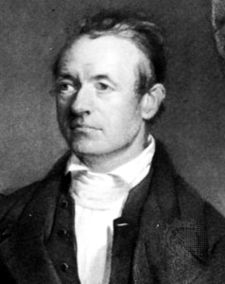 On April 12, 1850 American missionary Adoniram Judson died on a ship in the Bay of Bengal at age 61. He had ministered in southern Asia (mostly
On April 12, 1850 American missionary Adoniram Judson died on a ship in the Bay of Bengal at age 61. He had ministered in southern Asia (mostly Adoniram Judson saw much success during his ministry. “When Judson began his mission in
Along with success, Judson also experienced many trials. His first two wives, Ann, then Sarah, died in
Faithful missionaries frequently face hardships. In many cases they have left the comforts of society to live in primitive or semi-primitive conditions. Medical help is limited and villages sometimes nearly inaccessible. In Judson’s time travel and communication were slow. Emily didn’t receive word of her husband’s death until four months later.
So what keeps missionaries, or any servants of God, going? The bedridden Judson gives us a clue in his conversation with Emily shortly before his cruise. Commenting on news that Judson’s influence had spread to
I was never deeply interested in any subject, I never prayed sincerely and earnestly for anything, but it came. At some time—no matter at how distant a day—somehow, in some shape—probably the last I should have devised—it came. And yet I have always had so little faith! May God forgive me, and, while He condescends to use me as His instrument, wipe the sin of unbelief from my heart” (Courtney Anderson, To the Golden Shore: The Life of Adoniram Judson.
The recognition of our smallness and sinfulness and of God’s omnipotence and condescension toward us through Jesus Christ gives us reason to hope in the One who is holy, yet merciful. This great news gladdens the receiving heart and motivates it to “go into all the world and preach the gospel to every creature” so they can have this hope, too (Mark 16:15).
Adoniram Judson thought he would recover and continue to serve, but he realized near the end that recovery was not God’s will. Still, he was not shaken in his faith. “Death will never take me by surprise…I feel so strong in Christ. He has not led me so tenderly thus far, to forsake me at the very gate of heaven” (
One of Judson’s sayings, especially suited to Burmese thought, was, “I long to reach the

No comments:
Post a Comment